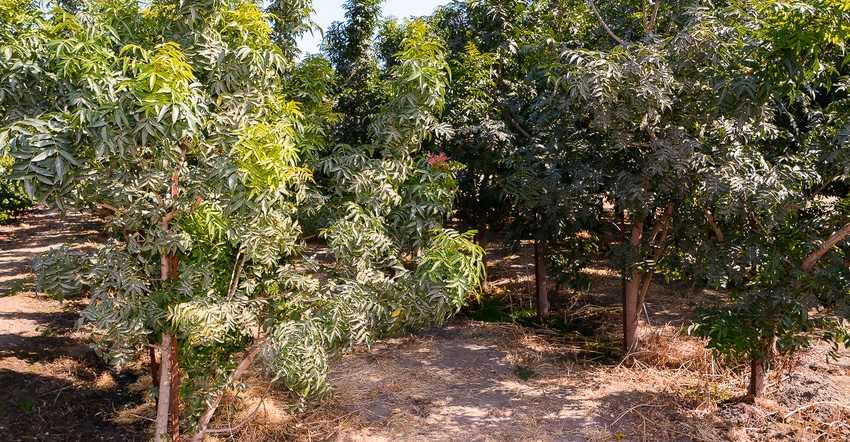October 25, 2018

Pistachio growers have until Dec. 15 to apply for federal Tree Assistance Program (TAP) funds to replace orchards infected with Pistachio Bushy Top Syndrome. Funding can still be applied for if the orchards have since been replaced or otherwise removed.
Growers wishing to avail themselves of this opportunity should immediately contact their local Farm Service Agency office to determine eligibility and begin the paperwork process. No late applications will be accepted.
TAP is a disaster program through the 2014 Farm Bill for eligible trees, bushes or vines. In the case of Pistachio Bushy Top Syndrome (PBTS), pistachio growers must have suffered more than 18 percent mortality in their pistachio orchard related specifically to PBTS. The disaster assistance covers the loss of the trees and does not cover loss of income.
Growers who have replanted or converted orchards to other crops may be eligible for assistance, depending on mortality level. Orchards replaced with other crops may still be eligible for TAP funds.
FSA will require documentation of original planting, such as nursery receipts. Documentation of orchard removal will also be needed for those who replanted. The agency will also want to see verified, third-party diagnosis of PBTS. Growers who were reimbursed by their nursery for the trees are not eligible for tree compensation but may be eligible for assistance covering site preparation costs.
Gaining coverage under TAP was a process unto itself, according to Richard Matoian, executive director of American Pistachio Growers, a trade association based in Fresno, Calif. The U.S. Department of Agriculture agreed to cover losses to when PBTS was first noticed in 2011.
Matoian says this is atypical for federal assistance programs like this as declared disasters are typically a one-time, short-lived event. After first thought to be linked to a single nursery and thus not eligible for TAP funds, PBTS was later linked to nursery stock propagated by multiple commercial nurseries from cloned material originating from the University of California.
You May Also Like




